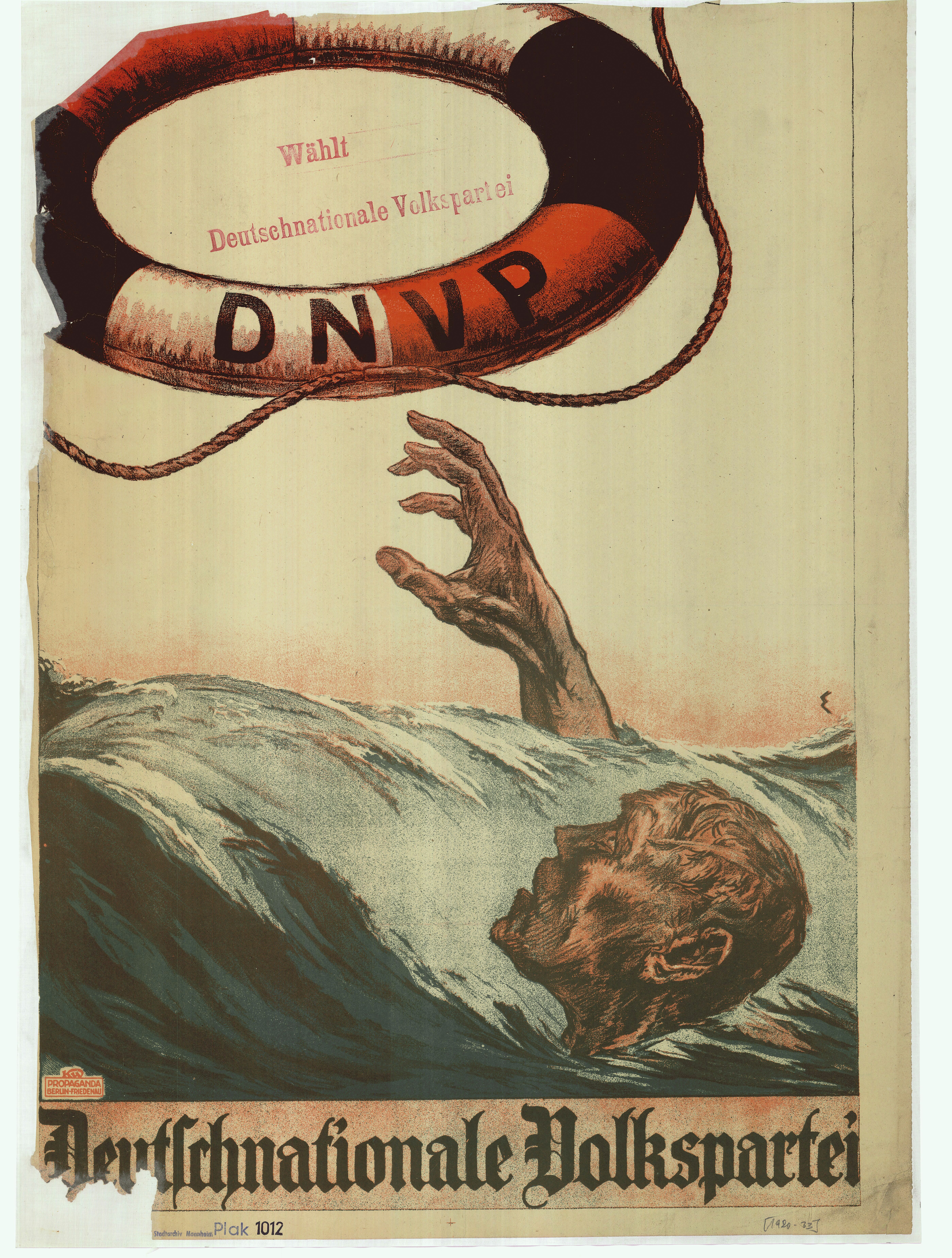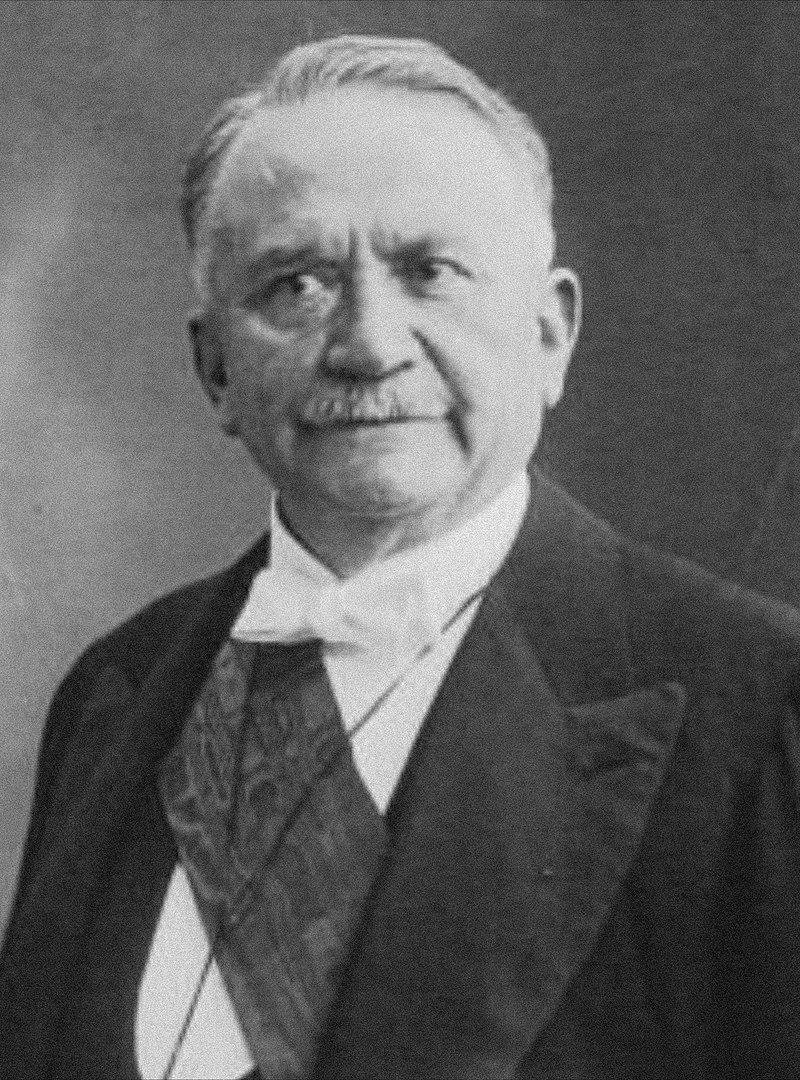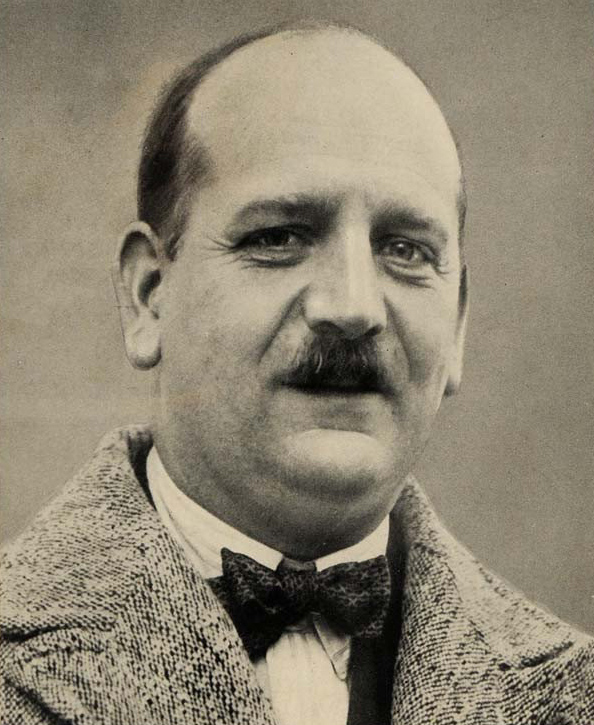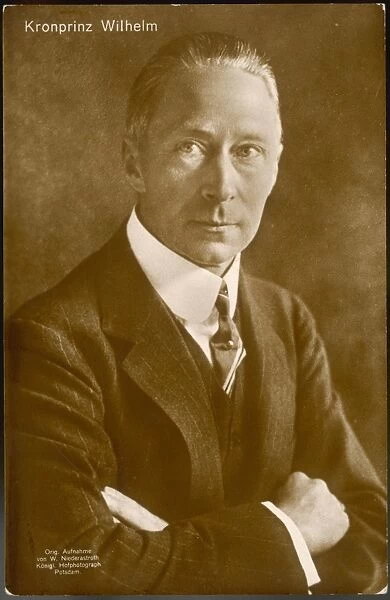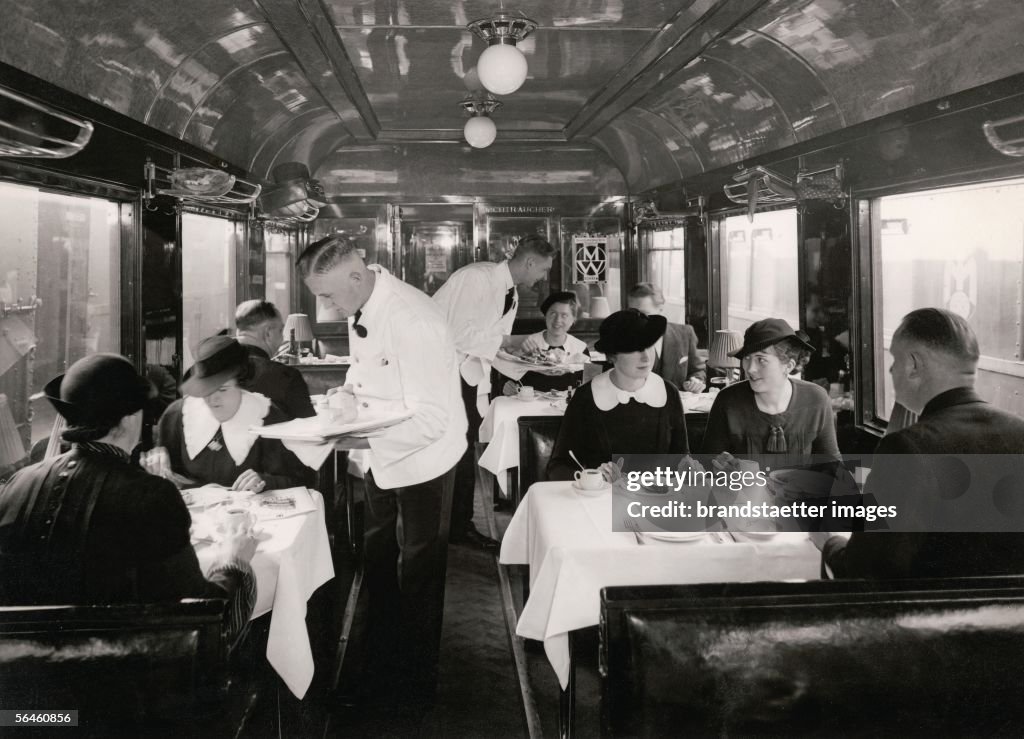8mm to the Left: A World Without Hitler
On the 9th of November, 1923, a stray bullet strikes and kills Adolf Hitler during the failed NSDAP Beer Hall Putsch. With the would-be Führer dead on the streets of Munich, the fate of Germany and the world as a whole shifts dramatically…
A Crumbling Right
"The necessity of hindsight when studying the history of Europe in the 20th century, and in particular that of Germany, cannot be understated. Even now, almost a century after the Treaties of Versailles, Saint-Germain, and Sèvres, we continue to learn more about the decisions and chances which paved the way for the events soon to divide Europe once more…"
- The Road to Armageddon, 2010 (Dr. Frederik von Franken, Professor of Germanic History at the University of Stettin)
The Great War is considered by many historians to be the single most decisive moment in the history of the world. Though the effects of the war were immense, breaking centuries-old empires and reshaping whole continents along lines drawn by men on the other side of the world, its aftereffects are even moreso. Both winners and losers would be forever changed and of the eight Great Powers which signed the infamous treaties a century ago, it is telling that only two still exist as they did in 1918.
Among the myriad of political ideologies which birthed themselves into the world amidst the death throes of the Great War, few are as iconic as that of Fascism. Though based upon theories postulated by various philosophers and politicians as early as the Springtime of Nations in 1848, it wasn't until the rise of Benito Mussolini, first as Prime Minister and then self-defined Duce (Leader) of Italy, that such ideas would see practical implementation. Under the rule of Fascism, Italy would see extensive industrialisation, military buildup, and increasingly hostile rhetoric towards her neighbours. Of foremost importance was the absolute devotion to the state by all citizens, followed by ideals of Italian superiority and the necessity of expansion into new lands in the Balkans and Africa to suit the growing Italian population. Corporatism, Catholicism, and Combat were the metaphorical "Three C's" of daily life in Mussolini's Italy; a life which, for the most part, far exceeded the quality experienced before the rise of Fascism.
This did not stop the frustration at the so-called “Vittoria Mutilata” (Mutilated victory) at the end of the Great War, when Italy, through the intervention of US President Woodrow Wilson, was denied her claims to Dalmatia following the Great War. Her allies in France and Britain, the very powers which had recognized and promised these lands in exchange for the men lost in the fires of war, were quick to toss Italy under the bus, all while expanding their own bloated empires in the Levant and Arabia. Now, Fascist Italy had decided to chart a new path under her own power, and hungry eyes looked across the Adriatic towards Yugoslavia and Greece, and South and West towards British Malta and the French Alps and Corsica.
Territory promised to Italy for their entrance into the Great War. Following the Treaty of Saint-Germain which ended the Austro-Hungarian Empire, Italy would receive only the Istrian Peninsula (top) and none of Dalmatia (right).
(https://www.ereticamente.net/2017/02/il-balletto-dei-trattati-michele-rallo.html)
Lands claimed by Italian irredentists following the Great War. Beyond those lands claimed during the Great War, their vision now included French Corsica (purple), British Malta (red), as well as alpine regions in France and neutral Switzerland.
(https://de.wikipedia.org/wiki/Irredentismus)
On the far end of the spectrum lay Communism, embodied most prominently by the Soviet Union on the easternmost edge of Europe, headed by the enigmatic figure of Joseph Stalin. Communism, or Stalinism as many name the Soviet ideology of this era, stood in parallel defiance to Fascism, denouncing practices such as Colonialism, Corporatism, and even religion itself as methods to oppress the working classes of the world. The Soviet Union was the largest contiguous nation in the world, rich in resources such as coal, iron, and of course oil; however, many argued that it was the sheer size of its population which made the Soviet Union so frightening. The collapse of the Russian Empire had seen many lands ripped from its dying corpse, including both strategic territories such as the Baltics and Bessarabia, as well as regions of Russian or Russian-adjacent (the ethnic uniqueness of Ukranians and Belorussians was still a point of debate in this era) settlement seized by the Second Polish Republic. As such, while officially denying ethno-centric policies, Moscow harboured a definite hunger for expansion into these regions. The advent of Communism in a largely rural nation had provided distinct challenges and, despite nearly a decade having passed since the end of the Russian Civil War, economic development was still lagging behind the likes of Germany, Japan, or Britain. None of these problems were enough to tarnish the adoration held by Communists the world over, all of whom dreamed of Marx’s proposed “world revolution”, aided in secret by donations from Stalin himself.
Vladimir Lenin, Father of the Russian Revolution, speaks before a crowd in the early days of the Russian Revolution. His actions would lead to the deaths of millions, both directly and indirectly.
(https://www.telesurenglish.net/anal...ional-Liberation-Struggles-20171023-0012.html)
Italian Fascism and Stalinist Communism were far from the only ideologies in the world, nor the only of the Authoritarian slant. The young Parliamentary Democracy in Japan would be strangled in its crib by the rising forces of Shōwa Statism. By the 1930’s Japan was dominated by a form of autocratic rule oft-confused with Fascism for its brutality and nationalism, teaching citizens a slavish devotion to the Emperor and the superiority of the Japanese over their Asian brethren. Much like Italy, Japan resented perceived betrayals at the peace talks following the Great War. Not only had Japanese attempts to enshrine racial equality (at least of the Japanese to Europeans) been rebuffed by the victorious powers, they continued to deny Japan their goals in mainland China, only barely accepting the Japanese annexation of Korea. They had allowed the return of the formerly German-controlled city of Qingdao to China much like how, a decade and a half earlier, they had refused Japanese attempts to annex the Port Arthur concession from the Russian Empire. It had become abundantly clear to the men in the Japanese government that no amount of industrialisation or trade would make the likes of Britain or France see them as equals.
No, Japan needed an empire as vast and insurmountable as that of the British. Under Emperor Shōwa, or Hirohito to the West, Japan had embarked on increasingly-aggressive rhetoric with their neighbours, and high-ranking officials in both the army and navy had begun developing independent ideas for expansion into mainland Asia and the Pacific, respectively. This had been facilitated by the conquest of German colonies in Micronesia and Chinese Manchuria and now Japanese culture was split; to the north lay the vast lands of Russian Siberia, swallowed by Japan during the Russian Civil War only to be forced from their grasp by perfidious America. To the south lay the incalculable wealth of the Dutch East Indies and British Malaysia, not to mention American colonies in the Philippines, Guam, and Hawaii which would expand Japanese naval range across the whole of the Pacific. Debate did not range on whether a war would be fought; rather, against whom?
Japanese expansion from the home islands, including puppet territories in mainland China.
(https://grudichistory.weebly.com/uploads/4/9/4/3/49437683/grudic_japan_1.2.pdf)
Countries like Hungary, Bulgaria, and Poland also flirted with non-democratic rule, though, at least by the early 1930’s, none had made the true descent into Authoritarianism. Both Hungary and Bulgaria were defeated powers stripped of ancestral lands and hungering to take down old enemies in the Balkans. Poland, meanwhile, had gained extensive lands populated by non-Poles, creating questions on ethnicity and policy which would define both its relationships with its minorities as well as its ability to reassert its status as a major power after more than a century of division. Even France and Britain, bastions of stability in the post-war world, were wracked with inner turmoil, the cost of the war and advent of the Great Depression bringing to light uncomfortable questions about class, race, and governance. Unrest was beginning to stir in their vast colonial empires and ideas of race and independence, though nascent, were growing.
Germany was certainly no exception. As the unofficial leader of the Central Powers Alliance and its strongest member, Germany was burdened with particularly harsh terms by the victorious Entente. Loss of land and reparations were coupled with military restrictions and loss of patents to cripple the former giant into a shadow of itself, its neighbours strengthened at German expense to keep Berlin from once more tugging on the reigns of Europe. In the East, historically- and ethnically-German lands had been handed out to Poland, Czechoslovakia, and Lithuania. To the south sat noble Austria, her attempts at union with Germany stifled and her government drifting slowly into the Italian sphere. To the West, the heartland of German industry and commerce, the Rhineland, had been occupied by French and Belgian troops as reparation payments were squeezed from every source possible.
Despite the masterstrokes of diplomacy penned by figures like Gustav Stresemann, beginning the period of détente improving relations with France and setting the Republic down the path of stability, anti-Democratic groups such as the Freikorps, far-right militants seeking to topple the Republic, fought every step of the way. Numerous attempts were made on the young democracy’s life. In 1920 the Kapp Putsch, led by several high-ranking military leaders and industrialists from the days of the empire, attempted to topple the system with a Conservative Revolution. Soon after, the little-known “Beer Hall Putsch” was undertaken by the NSDAP in 1923, an emulation of Mussolini’s March on Rome, which left multiple party members dead, including rising star Adolf Hitler. Last, but certainly not least, were the assassinations of well-known politicians such as Walter Rathenau and Matthias Erzberger. Despite all of this, the fledgling republic survived, albeit limping, until 1930.
That is where the true difficulties began to emerge.
Europe in 1930
(https://www.amazon.de/Whitneygraham-Europe-Political-Politisch-drucken/dp/B083V7VFZT)
—----------------------
Unter den Linden, Berlin, October 1928
“The old man’s made up his mind. He won’t be running again.”
A frustrated exhale was his response as Oskar von Hindenburg, son of the President and most powerful man in all of Germany, sank into the worn armchair. He immediately began digging into his pocket for a cigarette but a fresh Camel was held out before he had even touched his lighter. He accepted it, and the light which accompanied it, with a grateful nod.
“So where does that leave us?” queried Kurt von Schleicher. His own cigarette was burned nearly down to the nub, the air of the room, already smokey, particularly heavy around the other man.
Oskar gave himself a minute to take a good draw and then slowly exhale a cloud of nicotine-laced smoke. “Father is old. He wants to retire. He was retired before he got swept up into the world of politicking. The Presidency never suited him and he knows it.”
“Yes, well, that’s the problem, isn’t it?” Von Schleicher muttered, grinding the cigarette butt out in a nearby crystal ashtray. “The moment he’s gone there’ll be no one else to hold back the Reds. We’ve already got one of them in the Chancellorship; if we lose the Presidency, that’s it for Germany. They’ll sell us out to France and Britain just to save their precious Republic.” He spat the word like a curse. “We will never see Danzig again!”
The Presidency of the German Reich was a position of untold, and by the measurements of some unfair, power. The displacement of the Kaiser had not seen a complete alteration of the old imperial system but rather a redistribution of its power, with a President replacing the Kaiser and greater power ceded to the Reichstag. Under President von Hindenburg, it had not been hard to collect much of that power back–the problem, in the minds of many, was his unwillingness to do more with it. A true dictatorship was within reach if von Hindenburg would only take the steps, cried many! But he was an old man, and not a fool. He could not lead Germany down that path. It would have to be another.
“Though I hesitate to say this, I wonder if the departure of my father might prove more of a boon to our cause. After all, he has spent his tenure remaining largely on the sidelines. I remain uncertain if the choice to allow a Socialist Chancellor will truly break their support base as was planned.” He said the last part in a softer voice, leaning in towards von Schleicher. While they were currently alone in the Smoking Room, the urge to whisper while discussing such sensitive matters was natural.
Der Deutsche Herrenklub (The German Gentleman’s Club) was the safest location that either of them could think of to discuss such matters. It catered to the rich and powerful of German society, men whose wealth and influence could bend the ears of royalty. This was certainly not the first discussion to be held here amidst furtive glances, and it wouldn’t be the last.
“What better options are there? The Zentrum is barely holding together and the DNVP’s showing in May shelled out any hope we had.”
The DNVP, short for Deutschnationale Volkspartei (German National People’s Party), had been the hope of von Schleicher, President von Hindenburg, and all those who opposed the current parliamentary democracy under which Germany had chafed since the fall of the Kaiserreich. In 1924 its success in earning 21% of the German vote had promised hope for a future dominance of the Reichstag; however, in May of 1928 disaster had struck when the DNVP’s popularity had dropped to a mere 14% of the vote.
“We are still the second-biggest party behind the SPD. Given some work–”
“From whom?” demanded von Schleicher loudly, the smoke gusting back from the force of his voice. “That fool Hugenberg? He will run the party straight into the ground! The Reds are gaining and the Right is crumbling!”
Following the crushing drop in popularity experienced by the DNVP in the last few months, party leaders had appointed Alfred Hugenberg to the position of Party Chairman. It was no secret that Hugenberg had won for his wealth rather than for any other redeeming qualities; indeed, his wealth was his only redeeming quality, as in all other things he was crass, boorish, and lacked any filter between emotion and speech. His extreme hard-line Conservatism appealed to the men who felt that the Right was not doing enough to neuter the system and who felt that harsh, even extreme action had to be taken lest democracy become impossible to dislodge.
He slouched back in his chair, brows furrowed. “No, we need a new face for the Right. Someone not affiliated with party politics, like how your father won.”
“Choosing a prominent military leader from the war may not go over well with our neighbours,” Oskar warned.
Von Schleicher’s scowl deepened but he did not deny the truth in the words, as much as he hated orientating German policy to the whims of the French and British. Oskar’s father had already been a risky choice, not just for his history in the war but for his association with the Ludendorff dictatorship which had seized absolute control over the German Empire for the latter stages of the war, a period remembered without much fondness by the people. “No one from the Western Front, maybe, but perhaps someone from the East or a former member of the Kaiserliche Marine.”
Oskar knew immediately where his friend was going and shook his head. “Admiral von Tirpitz is loyal to the DNVP. Plus he refused to take on a greater role under my father. He seems to prefer remaining a simple representative.”
“Talk to him anyway. Maybe it’ll mean more coming from you.” Von Schleicher didn’t have high hopes, though. Even if von Tirpitz were to accept, he wouldn’t be the sort of leader that Germany needed. The only candidate von Schleicher could think of was… well, himself, but he knew that he had no chance as it currently stood.
“Very well. If not, perhaps he can point us in the right direction.”
“I dearly hope so. Germany needs a strong leader. Without one, she will wither and die.”
Kurt von Schleicher, close advisor to President von Hindenburg and a vocal opponent of the Weimar Democracy
(https://en.wikipedia.org/wiki/Kurt_von_Schleicher)
Oskar von Hindenburg (right) seated beside his father, President Paul von Hindenburg (left)
(https://ghdi.ghi-dc.org/sub_image.cfm?image_id=4364&language=german)
—------------------------
Bremen, November 1928
The moment that General der Infanterie Paul von Lettow-Vorbeck heard the name of the visitor calling, he knew what this would be about: Politics. The Lion of Africa had half a mind to send the man away on that basis alone, and it was only his respect for the von Hindenburg name (as well as the sort of unhealthy curiosity which had seen him agree to leading troops in East Africa) which kept him from doing so.
“What do you want?” he asked the moment the man crossed the threshold. Even if he hadn’t been introduced with his name, von Lettow-Vorbeck imagined he’d have known his name regardless, for Oskar von Hindenburg was the spitting image of his father.
In keeping with the difference in their ranks, Oskar first took the time to remove his hat and salute to his superior. “General von Lettow-Vorbeck, it is an honour–”
“What do you want?” the old general repeated. He could see that he had thrown the other man for a proverbial loop and was glad of it. People were more honest when they lacked sure footing.
Oskar’s eyes flicked to the nearby Sitting Room, clearly wishing to discuss this in a more relaxed atmosphere, not in the front hall of von Lettow-Vorbeck’s townhouse. With a sigh the older man gave in, leading the younger von Hindenburg over and calling for drinks from his housekeeper.
Von Lettow-Vorbeck restrained himself until refreshments had arrived before speaking. “I have the greatest respect for your father, but I will not join his cabinet.”
This earned him a curious look. “Did my father ask you to do so before?”
“There have been overtures.” von Lettow-Vorbeck waved a hand dismissively. “I am not a politician. Politics interests me only insofar as my singular vote.”
“So you would describe yourself as… content with the system governing Germany?”
That was a question which the man had mulled over himself many-a-night, and to which he still had no answer. “It is the system we have,” he said instead.
A gleam emerged in Oskar’s eyes at the words. He, it seemed, was a politician. “And if you could change it?”
Von Lettow-Vorbeck’s eyes narrowed. “The empire is gone. I try not to live in the past.”
“So what about the future? A new empire, a better Reich, even grander than the old one.”
Von Lettow-Vorbeck smirked into his glass. “I know when I am being sold to. Skip to the question.”
“Very well. Do you want to be President?”
The question was a surprise, though he recovered quickly. “No.”
“You would have the power to change Germany for the better! Do away with the Republic!”
“Would I? Is that not the thing which this convoluted voting system was designed to prevent? Your father did not succeed.”
“My father valued his oath to the Republic more than his oath to the German people.”
“Your father is a good and honourable man. I would strive to be the same in his place.”
“There is a higher noble calling than that to which any man can swear. The oath to his blood and nation. You defended our land against all odds and came out victorious. You can do it again!”
Von Lettow-Vorbeck couldn’t resist a slight chuckle. “You would make a fine politician.” He set down his beer and watched the dark liquid settle, fine bubbles popping in the foam. “Why me? There are assuredly a thousand younger, more passionate men who would jump at the chance.”
“Your name was recommended to me, actually.”
“Oh? By whom?”
“Admiral Alfred von Tirpitz.”
That drew a truly surprised reaction from the old general. He knew the admiral, of course–they had run in the same circles before the war and both participated in the DNVP now–but hadn’t expected to have made much of an impression, especially not enough of one to earn such a recommendation. “Did he explain his reasoning?”
Oskar shook his head.
Von Lettow-Vorbeck sat back and wondered silently to himself. He knew himself to be a popular figure with the people. Humility aside, he had done the impossible in East Africa and had been the only general to successfully invade British territory during the war. He and von Hindenburg had much in common in that aspect. But von Lettow-Vorbeck had sided with Kapp during his attempted putsch, a mistake he could readily admit, and had withdrawn since then. He had no desire for power, of that he was sure. And yet… “Surely I am not your only candidate?”
“No,” Oskar replied readily, and von Lettow-Vorbeck appreciated the honesty. The hunt for a candidate would be a gruelling work sifting out the savvy from the egotistical. Many on the Right held far too much in common with that Hugenberg fellow who had taken over the DNVP party to which von Lettow-Vorbeck himself subscribed. Just as there were members of the SPD with whom von Lettow-Vorbeck would gladly share a drink, there were men within the DNVP whom he’d just as gladly see tossed out into the wilderness of Tanganyika.
“I will consider it,” he said at last. Not a confirmation, not a dismissal. He would have to speak with his wife, as well as with others from the old days. A decision this immense could not be made lightly.
“That is all I ask,” Oskar replied with a genuine smile.
_________________________
Paul von Lettow-Vorbeck (pictured on horseback) parading through Berlin at the closure of the Great War, one of the few victory parades to occur.
(https://wkgeschichte.weser-kurier.de/zum-tee-beim-general/)
The German Empire in Africa at the dawn of 1914. Within the first stage of the war all German colonies would fall under occupation except for German East Africa, where Paul von Lettow-Vorbeck held back the British assault for nearly four years with little more than trained African Ashkari troops and the supplies he managed to raid.
(https://www.dw.com/de/hitlers-afrika-pläne/a-17887502)
At the outbreak of the Great War, Paul von Lettow-Vorbeck was a general serving in German Africa. Under him served not just colonial troops outsourced from the German mainland, but also the Askari, highly-trained and capable African soldiers loyal to the Kaiser and the Empire. For four years, with only a force of roughly 14,000 men, General von Lettow-Vorbeck and his Askari would hold back a combination of British, Indian, Portuguese, and Belgian troops totalling roughly 300,000, and would even succeed in invading British holdings in Kenya to claim supplies when their own ran out (cut off as they were from Berlin by the Royal Navy). His fluency in Swahili and willingness to promote even non-Europeans to positions of authority earned him the eternal respect of the East African troops, and even years after the war and a change to British rule, the Lion of Africa would hold a renowned place in their hearts.
Paul von Lettow-Vorbeck was a man whom few would have chosen outright for a position of authority and power, yet simultaneously the sort of man who, upon his name being uttered, would be immediately categorised as a capable leader and given tactician. No official information exists as to why it was his name which Admiral von Tirpitz chose when compared to the many other prestigious war heroes, and it is likely to have simply been a stroke of coincidence, or perhaps, as some claim, the touch of divine intervention.
With the rising strength of the Socialists and Communists, President von Hindenburg’s faith in the German Right had, by all accounts, begun to wane. Dreams of a restored empire or a powerful dictatorship had come and gone and concessions were increasingly demanded for the popular Left-leaning SPD, the Sozialdemokratische Partei Deutschlands (Social Democratic Party of Germany). In the memoirs of his son, published in the late 1950’s, it is revealed that von Hindenburg’s unwillingness to return as president a second time was due to his belief that a second term would see him forced to pit his Conservative conscience against the demands of the German people. His choice to not return was made in favour of a far worse choice, in his view, which would break either his soul or his nation.
Historians and novelists have long questioned how things might have differed if President von Hindenburg had undertaken a second term, or perhaps if a unifying figure had emerged to unite the extremes of the political landscape. Some argue that Germany would have gone the way of Italy, a fascist dictatorship promising redemption for a trodden-upon nation; others point at the ever-rising Socialist and Communist sympathies and predict a German-Soviet alliance reshaping Europe in their own image. Though neither came to pass, it is undeniable that in those last years of the 1920’s Germany teetered at the edge of a knife. And though the Weimar Republic would fall, Germany would not fall with it.
Von Lettow-Vorbeck is a name which German schoolchildren today learn alongside the likes of Otto von Bismarck and Friedrich the Great, but in 1928 “The Lion of Africa” was merely a retired former general with a successful legacy and a pithy nickname. Even after receiving a confirmation of his willingness to run for president, von Lettow-Vorbeck would be merely the fourth option in a list of nearly a dozen candidates including generals, admirals, politicians, and even a member of the former imperial family.
Within two years, his name would be the only one left.
______________________________________________
Author’s Note: I have had this idea in the back of my mind for a long while and decided to finally put it out there.
In essence this story isn’t about a world without the Nazis (as they do technically still exist, albeit vastly reduced and a bit different from how they were IRL), but, rather, a world where the unifying force in German politics did not come from one of the political extremes like Communism or Fascism. Additionally, this story touches on something which I have often wondered–without the presence of Nazi Germany or an otherwise stable and threatening Germany, how would the rest of Europe–especially countries like Italy, Poland, Hungary, or France–developed and interacted?
All comments, questions, and discussions are welcome. Give me your ideas. Please be polite to everyone!
Big thanks to @Garrison and @Augenis for their help as well as everyone who took place in my poll @here. Special shout out to Frederik and Peter.
Last edited:
